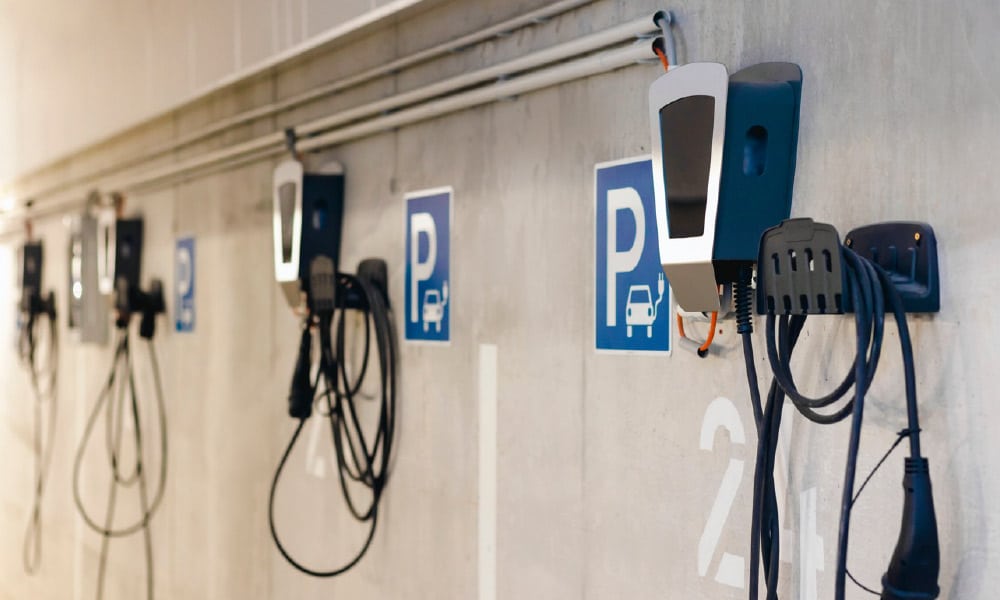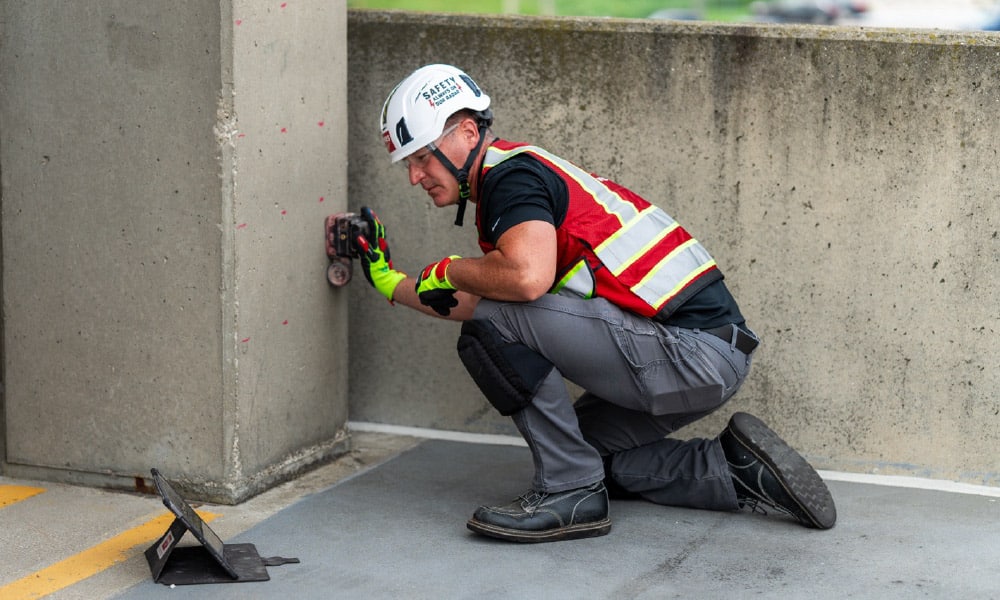The Big Apple is going electric.

GPRS provides 99.8%-accurate utility locating and precision concrete scanning services to protect you and your project from the dangers of subsurface damage.
New York City Council is reviewing a bill that would require parking garages and open lots with 10 or more spaces licensed by the Department of Consumer and Worker Protection (DCWP) to install Electric Vehicle Supply Equipment (EVSE) in 20% of parking spaces, while ensuring 40% of spaces are EVSE-capable by January 1, 2035.
The bill allows for adjustments or waivers under certain circumstances, such as structural infeasibility. For garages and lots not licensed by DCWP, various agencies would conduct a study and issue a report within two years of the law’s enactment, recommending EVSE installation requirements. The Department of Buildings (DOB) would then be required to issue rules for these non-DCWP facilities by January 1, 2027. The DOB would also be obligated to submit an annual report on EVSE installations.
According to Propmodo, many garage owners have already begun installing EV chargers, thanks to incentives from the New York State Energy Research and Development Authority (NYSERDA) and ConEdison. ConEdison’s EV Ready program subsidizes the installation of chargers, while NYSERDA heavily subsidizes Level 2 chargers.

GPRS provides 99.8%-accurate utility locating and precision concrete scanning services to protect you and your project from the dangers of subsurface damage.
“NYSERDA was basically handing away Level 2 chargers,” said Vinod Palal, Principal and Senior Electrical Engineer at Goldman Copeland, in an interview with Propmodo. Palal also interprets Local Law 55 as retroactive, applying not only to new buildings but also existing ones. Although the law doesn’t specify penalties for non-compliance, Palal noted that owners are already inquiring about the costs of adhering to the regulations.
As of February 2024, there were 200,000 EVs on New York’s roads, according to the New York Power Authority. In response to the growing demand, the city is expanding its EV infrastructure, including what will be New York’s largest-ever public EV charging station near JFK airport, developed by Wildflower. This station will initially include 65 EV-ready charging stations, with 12 rapid chargers available 24/7, and plans for future expansion to support electric trucks as demand rises.
“…By 2040, New York City’s economy is expected to create 400,000 green jobs, and this project near JFK showcases the potential of EV charging to reduce carbon emissions and generate thousands of green collar jobs to design, install, and maintain critical climate infrastructure,” said Deputy Mayor Maria Torres-Springer.
“Wildflower’s electric vehicle charging development highlights New York City’s commitment to its Green Economy Action Plan and positions the city as a global leader in sustainability and carbon neutrality,” added NYCEDC President Andrew Kimball.
Whether you’re installing EV chargers in a parking garage or constructing a purpose-built charging station, understanding what lies beneath your job site is crucial to keeping your project on time, within budget, and safe.
GPRS offers 99.8% accurate utility locating and precision concrete scanning to prevent subsurface damage. Using ground penetrating radar (GPR) and electromagnetic (EM) locating, our SIM-certified Project Managers provide detailed maps of underground infrastructure, ensuring safe excavation.
This verified field data is accessible 24/7 via any device through SiteMap® (patent pending), GPRS’ cloud-based tool that documents existing conditions to protect your assets and workforce.
Frequently Asked Questions
Who installs EV charging stations?
Anyone who has met the U.S. Department of Energy’s requirements procurement process requirements knows that there are many contractors who claim they install EV chargers, but as with any infrastructure project, hiring a certified electrical contractor, general contractor, and a private and public utility locating & mapping contractor with proven track records with EV charging installation is important.
How much does it cost to install an EV charging station? (public and private)
The base cost of a commercial EV charging station is between $1,000 and $2,500 according to information from the EV Charging Summit. However, that is merely the cost of the unit itself, and those costs change dramatically when looking at home installations.
A Level 1 private (home) EV charger will cost between $300 and $1,000, not including cost to install. A Level 2 home charger, on the other hand, will cost from $700 – $1,800, again not including installation, and commercial public units can cost $12,000 or more for commercial installation.
To help keep costs low, doing your due diligence with complete subsurface facility mapping prior to any excavation is crucial. Accurate utility locating and concrete scanning can mitigate the risk of damages caused by utility strikes and prevent accidents.
